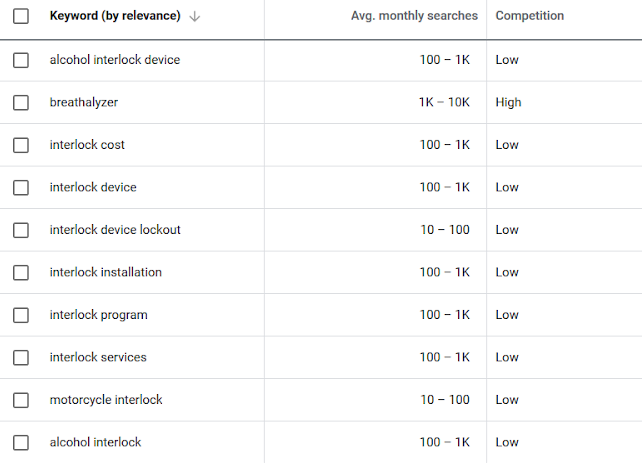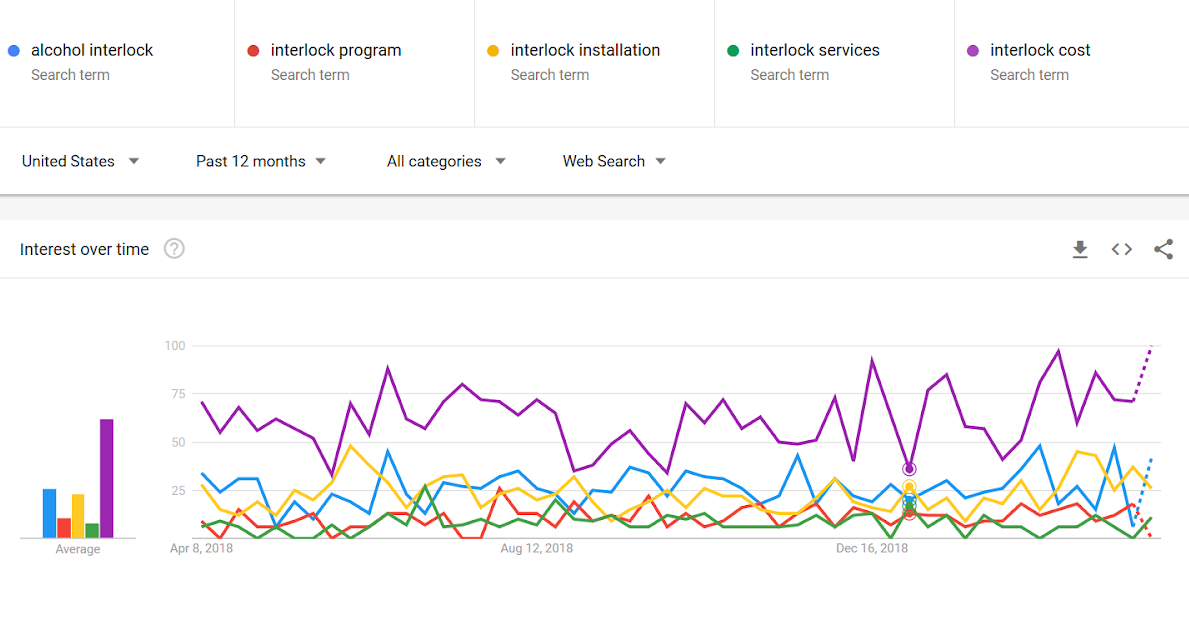How to Choose (and Use) the Best Keywords for Your Law Firm: A No-Nonsense Guide
Search Engine Optimization. Keyword ranking. Crawling. White hat vs. black hat techniques. Domain authority.
It's enough to drive the average attorney, who's just trying to increase their online reach and maybe get a few new clients, to consider throwing content marketing out the window completely.
A tad over-the-top, perhaps, but understandable considering the huge amount of contradictory information out there, not to mention all the other important tasks that are fighting for your attention.
Wouldn't it be great if there was a simple, no-nonsense guide on how to easily choose the right keywords and naturally insert them into your content?
I thought it would be incredibly useful, something I would have appreciated when I first started looking into SEO techniques for law firms…
… and so here we are. Let's dive into how to choose the right keywords for your goals and how to use them to get the most reward for your efforts.
SEO & Keywords: What and Why
By focusing on search engine optimization (SEO), you are making a strategic effort to increase your ranking on Google and other search engines.
Why should you care?
To put it simply, the higher up in the search results for a given term, the more likely it is that your page will be clicked on. And if you’re on the second or, god forbid, third page of search results, you may as well say goodbye to organic traffic. (That's the stuff you don't pay for through things like ads and directory listings.)
Keywords are the specific terms your article or website is being ranked for, so being strategic about your choice of keywords is very important.
Why do you need to bother even choosing a keyword, rather than writing what comes naturally?
You’re still going to be writing organically (trust me, Google hates awkward writing), but you do need to focus on one or two specific phrases for each page on your website. It’s difficult to rank for anything if unrelated terms are used throughout the text, especially if none are used more than once or twice. Google won’t know what your page is actually about, and so won’t give extra weight to any of your keywords.
To avoid this, you need to choose strategic phrases and sprinkle them (naturally) throughout the text in order for Google to know what the heck you’re writing about…
… and when to recommend your page to web surfers.
Pick your main keywords before choosing a title
When you’re setting out to write an article or other online copy, you should have at least a basic idea of the topic.
What's the purpose of the text? What are you writing about?
What would people be searching for in Google when you want them to come across your website?
Consider the main phrases or words that relate to your topic, and then brainstorm any and all similar terms or phrases that are relevant. Fill a whole page if you have to! For now, the more the merrier.
For example, if you’re writing an informational article about ignition interlock devices (commonly installed in vehicles after a drink-driving case), initial keywords that come to mind might be: ignition interlock device, alcohol interlock device, drink-driving interlock and breathalyzer.
Use Google to Find Alternate Phrases
Open a new tab, go to Google and search for each of your key terms, one by one.
Begin by typing the keyword into the Google search box and, without hitting enter, see what the search engine giant thinks you might also be interested in. Add any relevant ones to your list.
Then, hit search.
Scroll down to the bottom of the search results page, and check out what Google offers you in the “searches related to...” section. Anything relevant here? Add it to the list.
After going through each of your keywords and phrases, you should have a sizeable list that you could focus on. But we’re not done quite yet.
The next thing you want to do is trim down the list of keywords you've accumulated, by identifying the ones that will a) actually bring traffic to your site, and b) aren't so competitive that your efforts are likely to go to waste.
How, you ask?
Use Google Ads to See the Popularity of Keywords
Google Ads (previously AdWords) offers a tool called Keyword Planner to help you determine the popularity and monthly search volume of your potential keywords. You do need a Google Ads account to use this feature, but it doesn’t cost you a dime—check out how to setup and use your Google Ads account.
With Keyword Planner, you can easily search through all of your potential keywords and see their average number of monthly searches and competition levels.
There are other metrics available on the dashboard, but you can ignore these for now.
What results to focus on
The average monthly searches section shows you an admittedly broad range of the approximate number of times your keyword or phrase is typed into Google each month.
Wondering how to use this to your advantage?
If this metric is blank (indicating a number too small to register) or under 1K, you might want to avoid using this keyword as it is unlikely to garner a lot of interest—unless you’re targeting a small, local area. Local SEO is a whole different ball game, and a topic for another day.
[See Image 1, below]
On the flip side, if the metric indicates a monthly search volume of 100K to 1M, you might want to avoid this keyword as well, as everyone will competing for a top spot in Google’s search results.
In regards to competition, anything that indicates a HIGH level of competition, particularly with a large number of monthly searches, is likely going to be too hard to rank for. Especially if you haven't been focusing on SEO for long.
Instead, focus on keywords that have a decent number of monthly searches and a low or medium competition level.
[See Image 2, below]
Determine the Most Powerful Keywords
Finally, it's a good idea to open up Google Trends (you don’t need an account for this tool) and enter your potential keywords into the search bar.
Enter each keyword or phrase, separated by a comma. You'll be presented with a graph that indicates the performance of these terms over time, which helps by providing a visual image of which keywords are doing better than others.
Are there any that are showing a spike in growth? These might be the ones you want to target.
[See Images 3 and 4, below]
Narrow it down
By now you should have a short list of keywords or phrases that have a decent number of monthly searches and are relevant to the topic.
If you feel like your list may be a little long, go through and remove any that aren't entirely relevant to the premise of the text. You want to narrow down and develop a list that is as specific as possible—no keywords that could end up competing with each other.
For the interlock device article, you might settle on using alcohol interlock device, breathalyzer, interlock cost, interlock installation and interlock program. Keywords that are similar to each other, such as alcohol interlock and interlock device, can be used as alternatives to your main keyword, so you’re not constantly repeating “alcohol interlock device” throughout your article.
These act as synonyms or, in the SEO world, latent semantic indexing (LSI) keywords. Although the impact of LSI keywords on ranking is up to debate, they’re certainly useful for breaking up repetition when you find yourself using the same key terms over and over again.
Now that you've done the research, it's time to ensure the results are put to good use.
Use Your Keywords Strategically
While writing the content, keep a list of your chosen keywords nearby as a reminder of what to focus on. Don’t force it, though—you want your article to be optimized for humans, above all else.
The extra ingredients to please Google can always be added in later.
Speaking of which...
After you've finished writing, it’s time to go back through the text and find any places where you can (naturally) incorporate your keywords.
Don’t go overboard, though—this is referred to as “keyword stuffing” and is a no-no in Google’s eyes. But if you can rearrange a few words or phrase a sentence differently to incorporate your keywords, go for it.
Where else to use your keywords
Aside from the main text, you want to use a keyword in your main title—Google gives these a lot of weight. Readers are also far more likely to click on a heading that specifically mentions what they’re looking for.
Subheadings throughout the text also carry a fair amount of weight with the Google gods, so sprinkling your keywords into the H2s and H3s is a good rule of thumb.
You should also take advantage of the page's meta description—that short piece of text under the title on Google search results.
When uploading text through your content management system (i.e. Wordpress), the meta description is automatically filled with a random section of the text. By writing this yourself, to describe the premise of the page, you can sprinkle in a keyword or two to add some SEO juice.
Finally, there are alt-tags—the text attached to images that helps visually impaired readers and those with bad internet connections to know what the image contains.
Lots of people don't realize that Google reads these image descriptions as if they were part of the content, and so these are also excellent areas to incorporate your keywords—only if you can do so naturally, of course.
To Summarize
While SEO might seem too technical or difficult to implement, especially when you don't have a lot of time on your hands, there are a few quick and easy ways to ensure your website plays nice with Google.
By strategically choosing your keywords and naturally incorporating them into your text in all the right places, you can increase the number of people who find your firm online.
And by publishing regular, useful content, you can build trust with the people who just might need to hire a lawyer.
Images:

Image 1

Image 2

Image 3

Image 4

